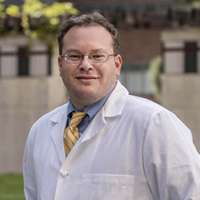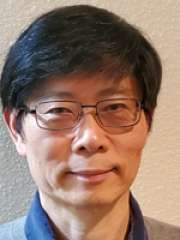Jacob Laboratory

Key investigator
- Noam Jacob, MD, PhD
Funding
- Department of Veterans Affairs
- UCLA
Current research projects
My research has focused on cellular and molecular mechanisms in autoimmunity and intestinal fibrosis
- The role of cytokines responsible for inducing and/or mitigating intestinal inflammation and fibrosis
- The contribution of the gut microbiome to intestinal fibrosis using in vivo and in vitro models
Future research directions
- Evaluating the mechanisms responsible for induction of fibroblast-mediated fibrosis with direct and indirect microbial stimuli
- Determining novel cellular pathways involved in intestinal fibrosis and inflammation
In the news
Bio
Dr. Jacob graduated cum laude from the University of California, Berkeley where he studied philosophy and molecular biology. He then investigated immunologic mechanisms involving cytokines central to T cell, B cell and innate immune function in autoimmune diseases at the University of Southern California, prior to earning his medical degree from the Keck School of Medicine at USC. He completed specialty training in internal medicine at the Mount Sinai School of Medicine, New York and then joined UCLA as a gastroenterology fellow in 2014. He pursued additional research training at UCLA through the Specialty Training and Advanced Research (STAR) program where he received his PhD in molecular, cellular and integrative physiology. His doctoral work focused on the effects of tumor necrosis factor-like cytokine 1A and the microbiome on intestinal fibrosis in inflammatory bowel disease. He joined the Vatche and Tamar Manoukian Division of Digestive Diseases faculty at UCLA as an assistant professor-in-residence in 2018.
Lab Member

Bo Qiano, MD
Dr. Qiao earned his medical degree at Zhangjiakou Medical School in China, followed by an MS in biochemistry at Beijing University. He served as a research associate at USC in the Department of Orthopedic Surgery and subsequently joined the Dumont-UCLA Transplant Center. Dr. Qiao then joined the laboratory of Tomas Ganz, PhD, MD, UCLA Center for Iron Disorders, where he developed an interest in liver disease.
Key publications - Full list on PubMed
- Jacob N, Kumagai K, Abraham JP, Shimodaira Y, Ye Y, Targan SR, Michelsen KS, Shih DQ. Direct Signaling of TL1A-DR3 on Fibroblasts Induces Intestinal Fibrosis In Vivo. Sci Rep. 2020 Oct 23;10(1):18189. doi: 10.1038/s41598-020-75168-5
- Jacob N, Jacobs J, Kumagai K, Ha CWY, Kanazawa Y, Lagishetty V, Altmayer K, Hamill AM, Von Arx A, Balfour S, Devkota S, Braun J, Michelsen KS, Targan SR, Shih DQ. Differing Microbial Populations Induce Tl1a-mediated Intestinal Fibrosis. In Press, Mucosal Immunology, 2018
- Jacob N, Targan SR, Shih DQ. “Cytokine and Anti-Cytokine Agents as Future Therapeutics for Fibrostenosing IBD.” Fibrostenotic Inflammatory Bowel Disease, Ed. Florian Rieder, Springer International Publishing, 2018
- Jacob N, Targan SR, Shih DQ. Cytokine and anti-cytokine therapies in prevention or treatment of fibrosis in IBD. United European Gastroenterol J. 2016; 4:531-40
- Jacob N, Guo S, Mathian A, Koss MN, Gindea S, Putterman C, Jacob CO, Stohl W. B Cell and BAFF dependence of IFNa-exaggerated disease in systemic lupus erythematosus-prone NZM 2328 mice. The Journal of Immunology. 2011; 186: 4984-93
- Jacob N, Stohl W. Cytokine disturbances in systemic lupus erythematosus. Arthritis Research & Therapy. 2011; 13: 228
- Jacob N, Stohl W. Autoantibody-dependent and autoantibody-independent roles for B cells in systemic lupus erythematosus: past, present, and future. Autoimmunity. 2010; 43: 84-97
- Stohl W, Jacob N, Guo S, Morel L. Constitutive overexpression of BAFF in autoimmune-resistant mice drives only some aspects of systemic lupus erythematosus-like autoimmunity. Arthritis and Rheumatism. 2010; 62: 2432-42
- Jacob N, Yang H, Pricop L, Liu Y, Gao X, Zheng SG, Wang J, Gao HX, Putterman C, Koss MN,Stohl W, Jacob CO. Accelerated pathological and clinical nephritis in systemic lupus erythematosus-prone New Zealand Mixed 2328 mice doubly deficient in TNF receptor 1 and TNF receptor 2 via a Th17-associated pathway. The Journal of Immunology. 2009; 182: 2532-41